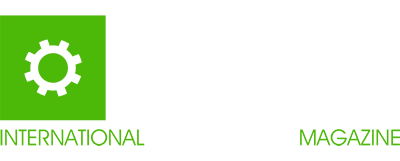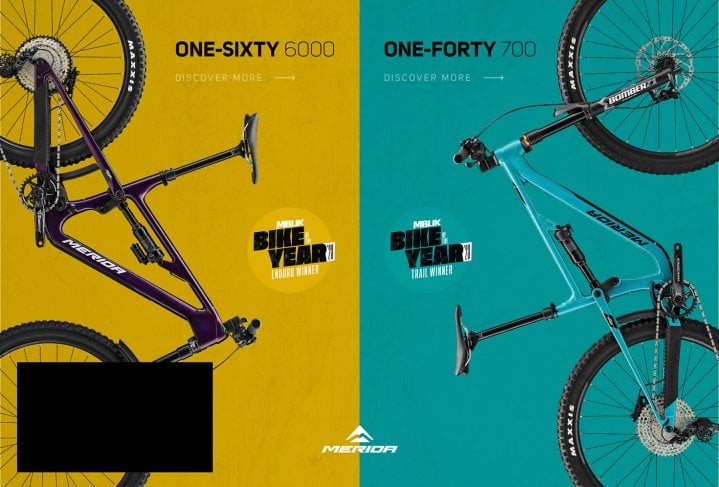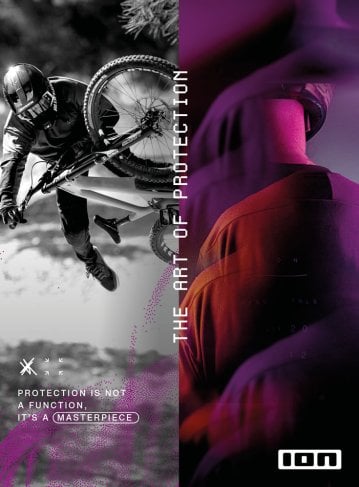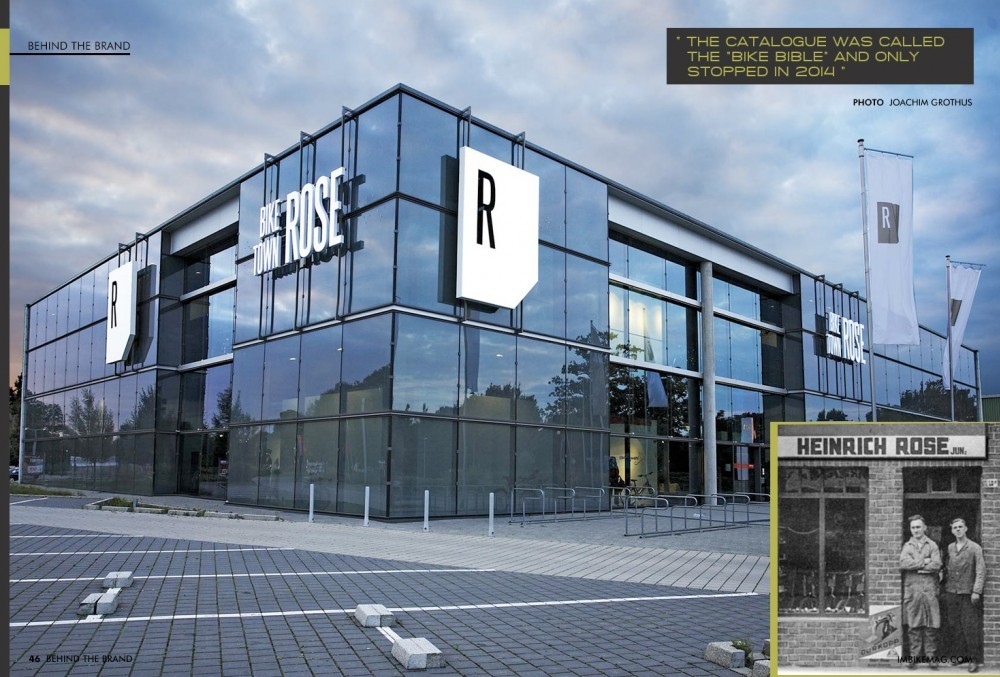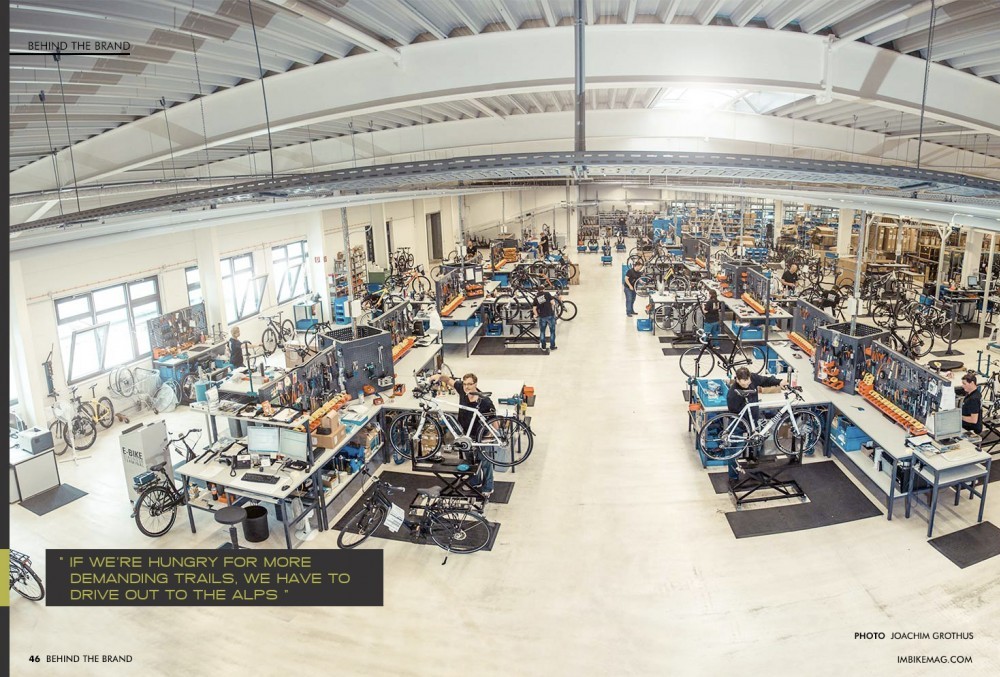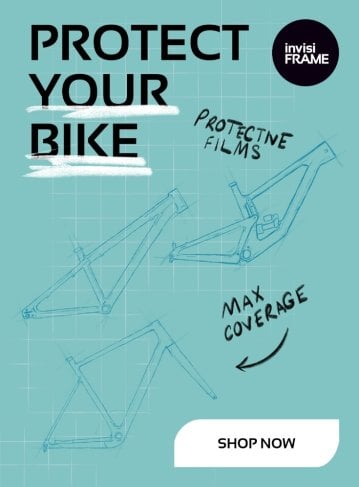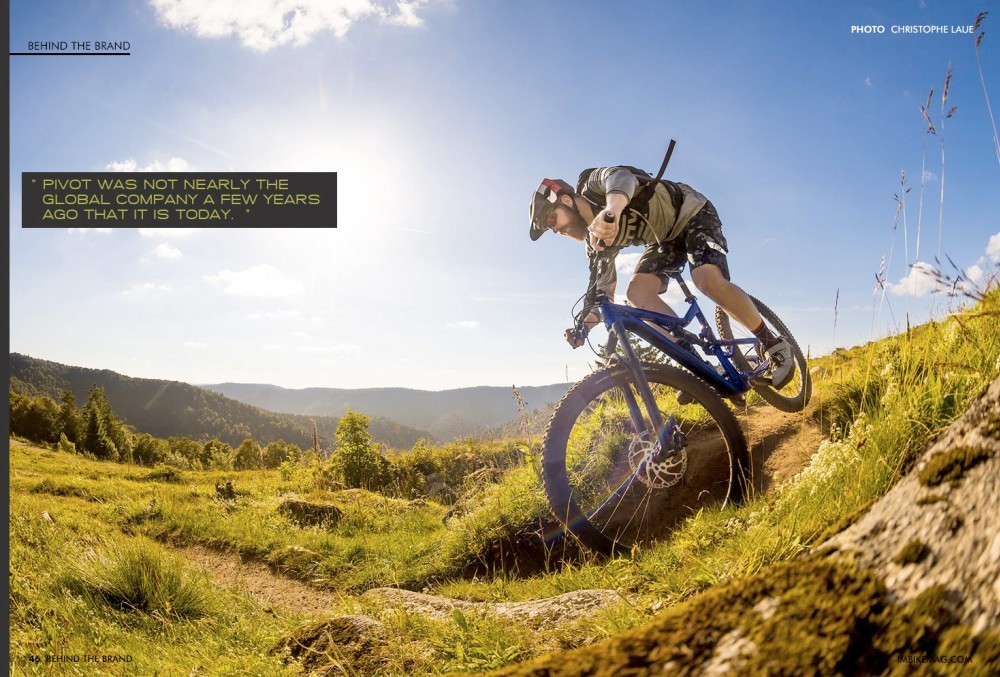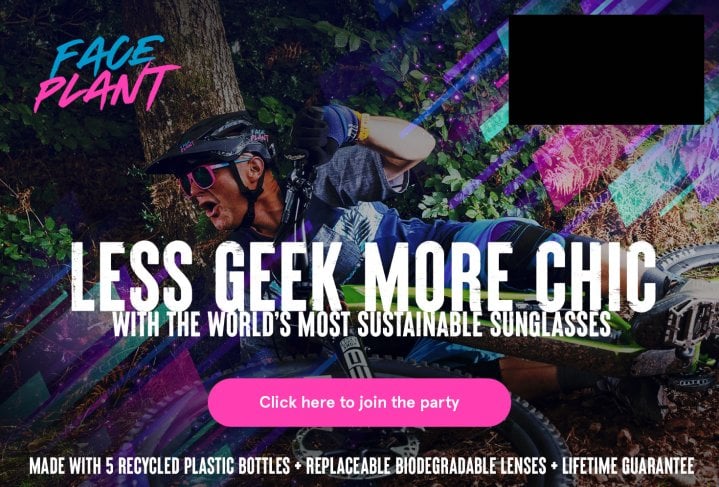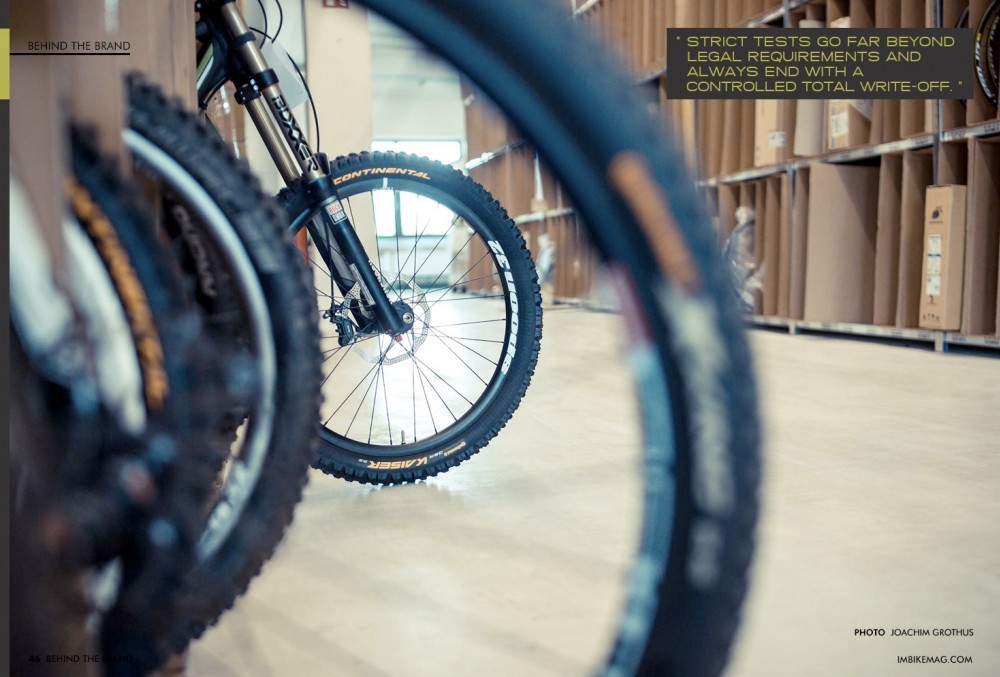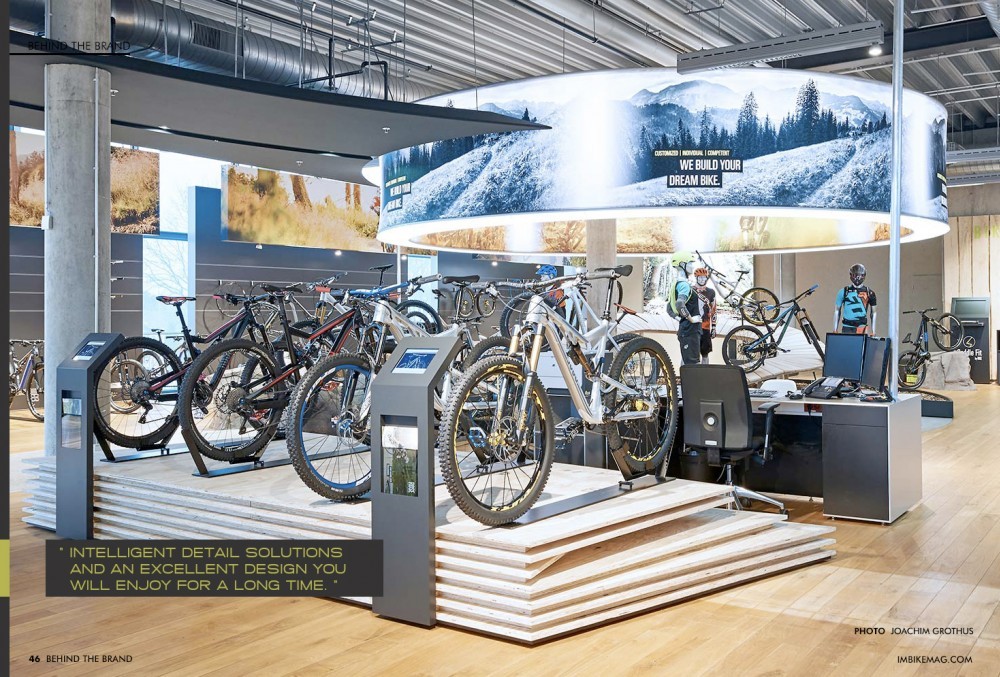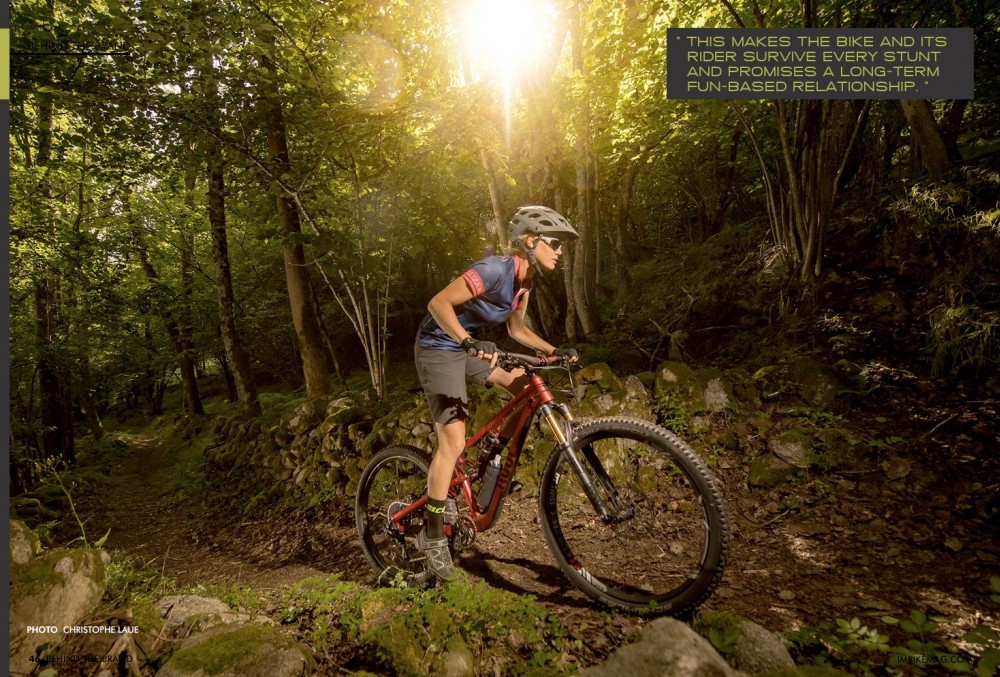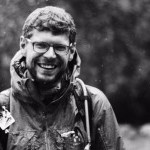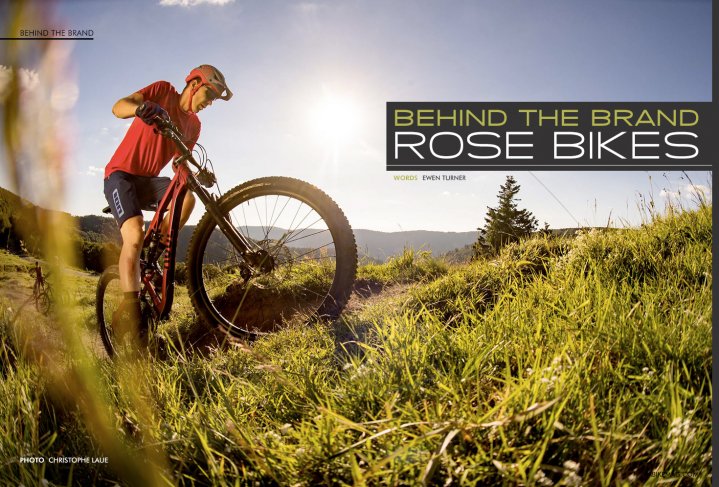
Behind the Brand - Rose
Issue 46 / Thu 16th Feb, 2017
Rose bikes have been reinventing themselves consistently over the last 100 years, from a tiny bike shop to the mega Biketown superstore and a website that allows of customisation of the highest degree. We catch up with them and find out the secret to their success.
Direct sellers Rose have a history stretching back over a century and represent a brand who remain faithful to their heritage while being almost unrecognisable in a business sense from how they started out. From one small shop, they are now thoroughly modern and have been at the forefront of the direct sales model for many years. We catch up with Rose and find out where they've been and where they're going.
You haven't always been a direct sales brand, how has the business evolved over the years and adapted to the changing economic climate and consumer culture?
Rose started 1907 with a small (the smallest!) bike shop in Bocholt city. Over the decades the shop grew, and with Erwin Rose’s fascination for cycling, it started to appeal to sportive cyclists in the early 1970s as one of the very few shops to sell high-end Italian frames and exquisite components from around the globe. The first catalogue was printed in 1982 and that year marked the rise of Rose’s direct sales model. The catalogue was called the “Bike Bible” and only stopped in 2014 due to more and more online sales. The online shop opened in 1996 and we started to produce and assemble our own bikes under the name “Red Bull” in 1998 and switched to Rose in 2008. In 2005 we went back to the roots and opened the Rose Biketown, a 20,000 square feet flagship store, which won the Store of the Year award 2017 – well we proved, that we still know how retail works. Today the primary business runs through our e-commerce platform at rosebikes.com, which will relaunch this spring.
With the options of both online sales and the Biketown store, what are the advantages for you as a business and for the consumer?
We combine online and offline in the best possible way. Customer journeys can start on a desktop, mobile or in-store and end in every possible way. The customization of a bike can be saved at any point and can be continued where and whenever the customer wants. More omnichannel services will get implemented in future.
Is it still a family run business?
Yes, Erwin Rose, Stefanie Rose and Thorsten Heckrath-Rose, together with Werner Hoven (not a family member) form the top management of the company.
Is it possible to get as big as Rose have become and still keep a family, small business feel to the business?
It is. Erwin Rose still works a lot with road product managers and engineers at the age of 70 plus. Steffi is responsible for HR tasks and keeps an eye on law and order. Thorsten Heckrath-Rose is the man when it comes to corporate development.
You are based on the German/Dutch border, what's the area like for mountain biking? You don't have the biggest mountains I suppose?
Sadly there are no mountains here. Mountain biking can be fun in the flat on a hardtail or an XC race bike round these parts. If we’re hungry for more demanding trails, we have to drive out to the Alps or into the uplands.
The way brands communicate with their audience has changed dramatically over the years, and you have recently started publishing your Cycle Stories and have even launched an App. What has led to these new developments?
Every day people are overloaded with information, brands more than ever need to come up with inspiring impulses so that people will devote their time and attention to them. As a brand, you have to offer an additional benefit to get and keep the attention of your clients, for example by publishing a customer magazine such as our Cycle Stories with inspiring content or by spreading relevant content via Facebook or our website.
Customers can configure their bike on your website, giving a huge amount of choice not always available from some of the direct sales brands. How important to you is this flexibility? It must make the assembly line very complicated!
ROSE is a brand for cyclists who attach great importance to individuality. We are bike experts who live the passion for cycling. Therefore, we offer our customers individuality through all channels to ensure a unique and modern shopping experience. The configuration and the custom-made idea is our USP and differentiates us from other bike brands. This flexibility and individuality offers the customer the possibility to design a bike that perfectly fits his or her needs and wishes regarding riding position, budget, field of use and preferred components.
The bike is assembled by hand in the warehouse in Bocholt. Someone walks through the aisles to collect all the parts for the bike, exactly as the customer configured his or her dream bike using the ROSE Bike Configurator. Everything then ends up with a ROSE bike mechanic and experienced hands assemble the bike to the client´s requirements and dimensions.
German Engineering is well respected around the world. How to you go about designing and testing your bikes are what standards do you test too? Where does all the design and testing happen?
Before a bike is allowed to bear the ROSE logo, it has to go through a lot of stages. Everything starts with an idea. Then drawings follow, computer simulations are produced, and the first prototypes are built. An entire fleet of team riders rides on ROSE bikes, and their experiences also influence the development of a bike. Elaborate wind tunnel tests help to improve the bikes’ aerodynamics and performance.
However, that is not enough, as we leave nothing to chance. In the testing laboratory, we simulate peak loads – each bike has to go through the torture test for two-wheelers. The additional, strict tests go far beyond legal requirements and always end with a controlled total write-off. That is the only way that we can see how robust and safe our bikes are. We want nothing but the truth. This procedure is the ultimate test for our bikes – and a positive aspect for your own safety. Stiffness and material fatigue tests, as well as overload tests, belong to our standard.
For many years, we have been working together with the engineering and consulting office of Dirk Zedler (www.zedler.de) as well as with EFBe Prüftechnik (www-efbe.de). No frame is safe from bicycle testers like them. With their support, we significantly improve the quality of our frames. Each ROSE bike is designed for a long life and reflects our idea of how a perfect bike should be like. A bike with best riding qualities, intelligent detail solutions and an excellent design you will enjoy for a long time.
Since 2013, Christoph Krüppel and Max Sistenich have both been responsible for the mountain bike range. The two passionate bikers take charge of everything that can be found off the road – whether it’s a hardtail, a full susser, a 27,5” bike or a 29er.
How important are your sponsored riders? Who are your main riders for 2017 and where are you focussing your energy in racing between Enduro, DH and XC?
Regarding mountain bikes, we have three teams. One XCO team called “Rose Vaujany Ultra Sports”. The characters here are Simon Gegenheimer (vice world champion XCE), Nathalie Schneitter, Steffen Thum, Aline Seitz, Remy Laffont and Viviane Costa-Favery)
Downhill will stay in the hands of British powerhouse Katy Curd and German National Champion Christian Junker and his teammate Manuel Schatz, forming the Rose factory racing team.
Riding in the Freeride Mountain Bike world tour in the name of the Rose Gravity team are Antoine Bizet, Lukas Knopf, Anthony Messere, Jakub Vencl, Torquato Testa and Tobi Wrobel. Especially with Anthony and Antoine and Torquato, we have some really strong guys, who can make it to the podiums for sure.
This year we see some new bike developments in the form of the Soul Fire, Granite Chief and Root Miller? Tell us about the developments with these bikes?
These are new bikes with well-known names. Geometry and kinematic were modernised from the ground up. Boost is standard for each platform, longer reach and a slacker head angle for more speed and control. These bikes ride much better than the predecessors. The Soul Fire comes with 180mm on the front and 190 in the rear and a very solid main link; this makes the bike and its rider survive every stunt and promises a long-term fun-based relationship.
There is a demand for more and more carbon framed mountain bikes, will we see carbon versions of these bikes in the future?
Carbon has many advantages, and we don’t want to neglect these. Our race bikes are made from fibre for sure. Even though we know that it is a material that isn’t easy to recycle and we use it in competition oriented bikes only.
You have constantly been keeping ahead of the curve, how will you continue to do this in the future?
We are learning each and every day, and we are trying to get better from bike to bike. The secret to success is not to rest, but to stay true to our company values.
Thanks for taking the time to talk to us!
Videos
By Ewen Turner
Ewen Turner is a self-confessed bike geek from Kendal in the Lake District of England. He runs a coaching and guiding business up there and has a plethora of knowledge about bikes with an analytical approach to testing. His passion for bicycles is infectious, and he’s a ripper on the trails who prefers to fit his working life around his time on the bike.
